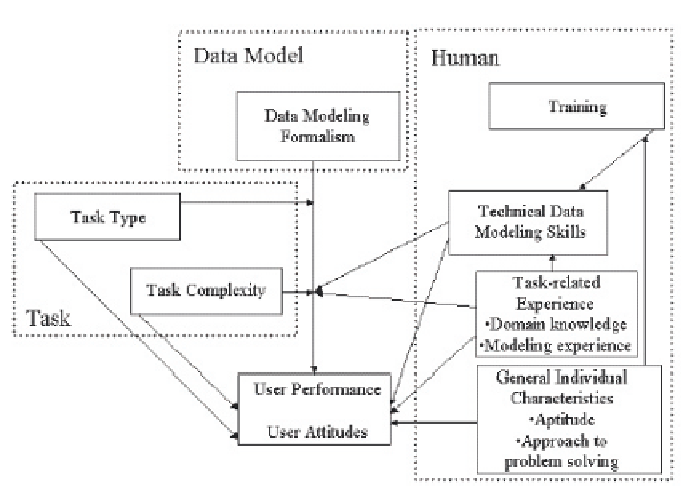Database Reference
In-Depth Information
Figure 2: Proposed framework for human factors research on data modeling
of research issues related to conceptual modeling grammars and methods. In particular, we
feel that the two frameworks used in tandem can help foster productive research streams in
the data modeling arena for many years.
As we have seen in the review of prior literature and summary of the results above
and will discuss below, many of the relevant relationships are between specifi c components
of the framework elements (see also Table 1). Hence, it is important to elaborate on the
broad construct categories Task, Data Model, Human, and Performance.
Task Complexity
and
Task Type
should be presented as separate concepts, because these dimensions of the
task are largely independent and their effects should be investigated separately from each
other. For example, it is understandably possible to have various levels of complexity for
comprehension, validation, and modeling tasks and both could be used separately as inde-
pendent variables in the same study at the same time. As to
Human
, we can differentiate
between multiple categories of individual characteristics which are independent from each
other. Underlying all other aspects of an individual's performance are
general individual
characteristics
such as intelligence, cognitive style, and problem-solving approach, which
affect a particular individual's performance in all cognitive tasks. The only data modeling
study so far that has explicitly used a variable from this category is Hoffer (1982). An indi-
vidual also has
experience
in a variety of areas, many of which are potentially relevant to
their performance in the task of interest (general problem-solving experience, programming
experience, general modeling experience, modeling experience with specifi c formalism(s),

